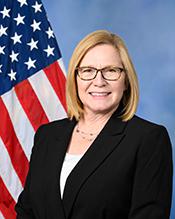0
0
0
Adopting the Rules of the House of Representatives for the One Hundred Nineteenth Congress, and for other purposes.
1/30/2025, 1:10 PM
Summary of Bill HRES 5
Bill 119 HRES 5, also known as Adopting the Rules of the House of Representatives for the One Hundred Nineteenth Congress, is a piece of legislation that outlines the rules and procedures that will govern the operations of the House of Representatives for the 119th Congress. The bill covers a wide range of topics, including the organization of committees, the scheduling of legislative business, and the conduct of members during debates and votes.
One key aspect of the bill is the establishment of various committees, such as the Committee on Rules, the Committee on Appropriations, and the Committee on Ways and Means. These committees play a crucial role in the legislative process by reviewing and shaping proposed legislation before it is brought to the full House for a vote.
The bill also addresses the scheduling of legislative business, including the process for introducing and debating bills on the House floor. It sets guidelines for how bills are considered, amended, and voted on, ensuring that all members have the opportunity to participate in the legislative process. Additionally, the bill includes provisions related to the conduct of members during debates and votes. It outlines rules for decorum and civility in the House chamber, as well as procedures for handling disputes and enforcing the rules of the House. Overall, Bill 119 HRES 5 is an important piece of legislation that establishes the framework for how the House of Representatives will operate during the 119th Congress. By setting clear rules and procedures, the bill aims to ensure that the legislative process runs smoothly and efficiently, allowing members to effectively represent their constituents and address the pressing issues facing the nation.
One key aspect of the bill is the establishment of various committees, such as the Committee on Rules, the Committee on Appropriations, and the Committee on Ways and Means. These committees play a crucial role in the legislative process by reviewing and shaping proposed legislation before it is brought to the full House for a vote.
The bill also addresses the scheduling of legislative business, including the process for introducing and debating bills on the House floor. It sets guidelines for how bills are considered, amended, and voted on, ensuring that all members have the opportunity to participate in the legislative process. Additionally, the bill includes provisions related to the conduct of members during debates and votes. It outlines rules for decorum and civility in the House chamber, as well as procedures for handling disputes and enforcing the rules of the House. Overall, Bill 119 HRES 5 is an important piece of legislation that establishes the framework for how the House of Representatives will operate during the 119th Congress. By setting clear rules and procedures, the bill aims to ensure that the legislative process runs smoothly and efficiently, allowing members to effectively represent their constituents and address the pressing issues facing the nation.
Congressional Summary of HRES 5
This resolution establishes rules for the House of Representatives for the 119th Congress.
The resolution adopts the rules from the 118th Congress with specified changes, including
- providing that a resolution vacating the Office of Speaker is only privileged (takes precedence over all matters other than motions to adjourn) if it is offered by a sponsor of the majority party joined by eight cosponsors from the majority party;
- providing that the Speaker may only entertain a motion to suspend the rules on Mondays, Tuesdays, and Wednesdays;
- prohibiting waiver (by rule or by order) of the germaneness rule (which requires amendments to be of the same subject matter as the measure under consideration); and
- prohibiting consideration of measures that exceed a specified long-term budget impact according to the Congressional Budget Office.
Additional changes include
- authorizing the use of electronic voting within a committee;
- authorizing remote appearances by non-executive branch witnesses and their counsel in committee proceedings;
- eliminating the House Office of Diversity and Inclusion;
- eliminating certain collective bargaining rights for employees of the House of Representatives;
- reauthorizing the House Select Committee on the Strategic Competition Between the United States and the Chinese Communist Party;
- reauthorizing the Tom Lantos Human Rights Commission; and
- reauthorizing the House Democracy Assistance Commission (an entity that advises democratic parliaments in other countries) and renaming it the House Democracy Partnership.
The resolution provides for the consideration of H.R. 21, H.R. 22, H.R. 23, H.R. 26, H.R. 27, H.R. 28, H.R. 29, H.R. 30, H.R. 31, H.R. 32, H.R. 33, and H.R. 35.
Read the Full Bill
Current Status of Bill HRES 5
Bill HRES 5 is currently in the status of Failed in House since January 3, 2025. Bill HRES 5 was introduced during Congress 119 and was introduced to the House on January 3, 2025. Bill HRES 5's most recent activity was Motion to reconsider laid on the table Agreed to without objection. as of January 3, 2025
Bipartisan Support of Bill HRES 5
Total Number of Sponsors
13Democrat Sponsors
0Republican Sponsors
13Unaffiliated Sponsors
0Total Number of Cosponsors
0Democrat Cosponsors
0Republican Cosponsors
0Unaffiliated Cosponsors
0Policy Area and Potential Impact of Bill HRES 5
Primary Policy Focus
CongressPotential Impact Areas
- Abortion
- Administrative law and regulatory procedures
- Advanced technology and technological innovations
- Appropriations
- Asia
- Assault and harassment offenses
- Border security and unlawful immigration
- Budget deficits and national debt
- Budget process
- China
- Computers and information technology
- Congressional Budget Office (CBO)
- Congressional committees
- Congressional leadership
- Congressional officers and employees
- Congressional operations and organization
- Congressional oversight
- Crimes against property
- Domestic violence and child abuse
- Drug trafficking and controlled substances
- Elections, voting, political campaign regulation
- Employment discrimination and employee rights
- Evidence and witnesses
- Executive agency funding and structure
- Family relationships
- Government buildings, facilities, and property
- Government employee pay, benefits, personnel management
- Government information and archives
- Government lending and loan guarantees
- Government trust funds
- Higher education
- House Committee on Agriculture
- House Committee on Appropriations
- House Committee on Education and the Workforce
- House Committee on Ethics
- House Committee on House Administration
- House Committee on Oversight and Accountability
- House Committee on Oversight and Government Reform
- House Committee on Rules
- House Committee on the Budget
- House Committee on the Judiciary
- House of Representatives
- Income tax rates
- Inflation and prices
- Intergovernmental relations
- Internal Revenue Service (IRS)
- International law and treaties
- Internet, web applications, social media
- Land transfers
- Law enforcement officers
- Legislative rules and procedure
- Members of Congress
- Oil and gas
- Sanctions
- Sex offenses
- Sex, gender, sexual orientation discrimination
- State and local government operations
- Student aid and college costs
- Taiwan
- War and emergency powers
Alternate Title(s) of Bill HRES 5
Adopting the Rules of the House of Representatives for the One Hundred Nineteenth Congress, and for other purposes.
Adopting the Rules of the House of Representatives for the One Hundred Nineteenth Congress, and for other purposes.
Comments

June Barefoot
503
11 months ago
I think this bill is good, but how will it impact our local schools?
Sponsors and Cosponsors of HRES 5
Latest Bills
Providing for congressional disapproval under chapter 8 of title 5, United States Code, of the rule submitted by the Bureau of Land Management relating to "Central Yukon Record of Decision and Approved Resource Management Plan".
Bill HJRES 106December 12, 2025
Providing for congressional disapproval under chapter 8 of title 5, United States Code, of the rule submitted by the Bureau of Land Management relating to "North Dakota Field Office Record of Decision and Approved Resource Management Plan".
Bill HJRES 105December 12, 2025
Holocaust Expropriated Art Recovery Act of 2025
Bill S 1884December 12, 2025
Providing for congressional disapproval under chapter 8 of title 5, United States Code, of the rule submitted by the Bureau of Land Management relating to "Miles City Field Office Record of Decision and Approved Resource Management Plan Amendment".
Bill HJRES 104December 12, 2025
Enduring Justice for Victims of Trafficking Act
Bill S 2584December 12, 2025
National Defense Authorization Act for Fiscal Year 2026
Bill S 1071December 12, 2025
Technical Corrections to the Northwestern New Mexico Rural Water Projects Act, Taos Pueblo Indian Water Rights Settlement Act, and Aamodt Litigation Settlement Act
Bill S 640December 12, 2025
Department of Defense Appropriations Act, 2026
Bill HR 4016December 12, 2025
End the Fed’s Big Bank Bailout Act
Bill S 2113December 12, 2025
Federal Reserve Transparency Act of 2025
Bill S 2327December 12, 2025
Laken Riley Act
Bill HR 29February 12, 2025
Illegitimate Court Counteraction Act
Bill HR 23January 29, 2025
To amend the Internal Revenue Code of 1986 to provide special rules for the taxation of certain residents of Taiwan with income from sources within the United States.
Bill HR 33February 4, 2025
Preventing Violence Against Women by Illegal Aliens Act
Bill HR 30January 22, 2025
Born-Alive Abortion Survivors Protection Act
Bill HR 21January 31, 2025
Protection of Women and Girls in Sports Act of 2025
Bill HR 28February 4, 2025

